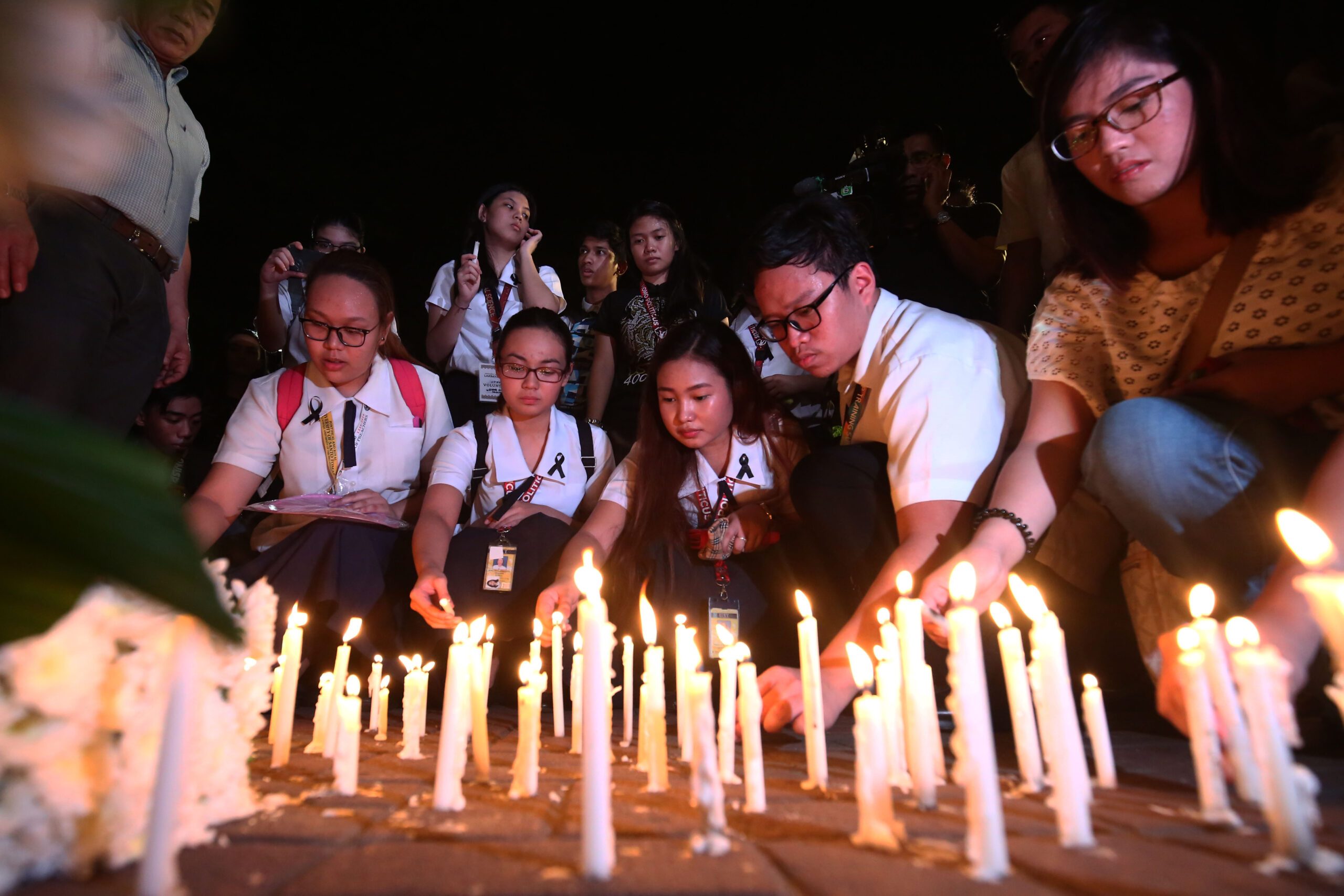SUMMARY
This is AI generated summarization, which may have errors. For context, always refer to the full article.

MANILA, Philippines — Student organizations and youth groups condemned the death of the University of Santo Tomas (UST) law student Horacio Castillo III in the Aegis Juris fraternity initiation rights.
Following reports on his death on Monday, September 18, #JusticeForHoracio quickly trended online as netizens took to social media to criticize the violent initiation hazing rituals of fraternities that has led to deaths.
“Violence has no place in an academic institution, particularly in the University of Santo Tomas that values and promotes charity and compassion. We will leave no stone unturned to ensure that the perpetrators be meted the appropriate sanctions and brought to justice,” UST said on its official Facebook page.
UST also emphasized that there is an ongoing investigation to find out the truth, determine liability, and institute the necessary legal actions. (READ: Aegis Juris, the UST frat allegedly behind latest hazing death)
The Association of Law Students of the Philippines also called on the authorities to swiftly and transparently investigate the circumstances leading to Horacio’s death.
“We demand that the investigation must be made public and the perpetrators are made accountable, as only an honest discussion of this practice, and how it pervades to this day, will give us a chance at pushing for its discontinuance,” the group said in a statement posted on its Facebook page.
What brotherhood?
Many student organizations also raised the argument against the violent culture of hazing that still exists in several fraternities in the country.
Republic Act No 8049 or the Anti-Hazing Law, was passed in 1995 following the death of Ateneo law student Leonardo “Lenny” Villa in 1991 after joining the Aquila Legis initiation rites. The law, however, did little to discourage fraternities from practicing hazing in their initiation rites.
The UST Law Debate & Moot Society, where Horacio was a member, called for a stop of the practice. The group expressed its grief in a statement, emphasizing that Castillo did not deserve what happened to him.
“We clamor for justice and accountability. We likewise yearn the abolition of this violent culture, the organization urged,” it said.
The UST Civil Law Student Council said that it will not allow for this horrendous act to pass without having those accountable face the consequences of their actions.
“To those responsible for this atrocious killing, now’s the time for you to question this barbaric tradition. Did his death justify your sense of brotherhood?” the council asked.
Akbayan Youth also denounced the hazing incident, urging that all frat-related violence must stop.
“We have lost a lot of young students to this senseless act of violence that has no place in this society. In these struggling times, students should be fighting against the culture of violence, not feeding it,” it said in a statement.
Implementation of the law
Student Council Alliance Secretary-General Jeza Rodriguez said that fraternities and sororities can be a great avenue for honing one’s potential only if they will remain consistent to their principles and be sensitive to the plight of its members.
“Frat-related violence shall never be a culture that will be accepted nor tolerated,” Rodriguez said in a text message to Rappler.
Should the anti-hazing law be amended? Will increasing jail time and imposing stiffer penalties put a stop to this violent culture? (READ: What is happening to hazing cases in the Philippines)
For Ruben Castanares, regional chairperson of the College Editors’ Guild of the Philippines-Region XII, increasing the penalties will not make any difference. Castanares said that authorities should focus on strengthening the implementation of the law.
“The law against such activity should be strengthened and enforced strictly,” he told Rappler.
Since 1995, at least 15 people have died allegedly due to hazing. But in the 22 years since the law was enacted, there has been only one conviction.
In 2014, then Valenzuela Representative Sherwin Gatchalian filed House Bill 4714 or the “Servando Act” which seeks a total ban on any form of hazing or physical or psychological suffering, harm or injury to be inflicted on a person who wants to be admitted to an organization.
In the proposed measure, which Gatchalian, now a senator, is pushing, “Any activity that humiliates, degrades, abuses, and endangers a neophyte, is also considered hazing.” The proposal hopes to repeal the existing Anti-Hazing Law which only regulates hazing activities among fraternities and sororities. — Rappler.com
Add a comment
How does this make you feel?
There are no comments yet. Add your comment to start the conversation.